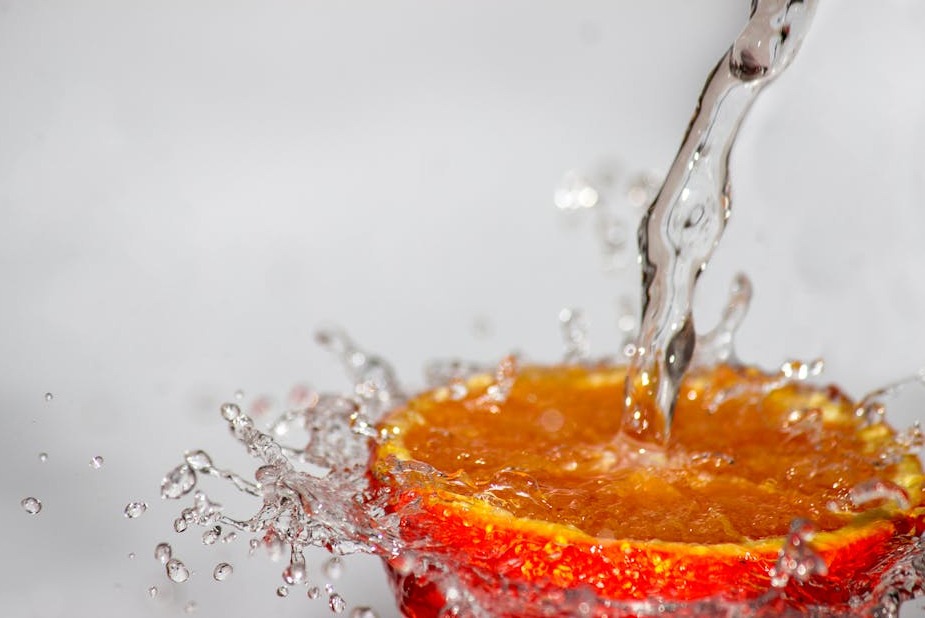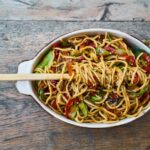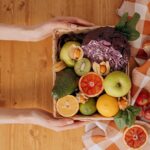Food’s Power in Preventing Dehydration

There has been a lot of talk about hydration in recent years. However, a lot of that conversation has been brought about due to the marketing of dietary “fads.” An example of a fad is drinking a certain number of glasses of water every day to be fully hydrated. Additionally, many soft drink companies claim that their beverages offer optimal hydration. The real truth is that preventing dehydration can be very simple. Yes, part of that hydration is drinking enough pure water. However, the part that many people don’t realize is that healthy hydration can be accomplished through the foods we eat as well.
What Exactly Is Dehydration?
Dehydration can actually be more dangerous than many people realize. According to the publication Adult Dehydration by Kory Taylor and Elizabeth B. Jones, “75% of Americans are chronically dehydrated … It has been reported to occur in 17% to 28% of older adults in the United States.” Also, “[Dehydration] can cause morbidity and mortality on its own and complicates many medical conditions.”
Even though the term is used quite a bit in the public sphere, many people are unaware of what dehydration actually consists of. According to the journal BMC Public Health, “Water deprivation occurs when the balance between water intake and loss is disrupted and causes a state of dehydration. Dehydration can be defined as a decrease in total body water content due to fluid loss, diminished fluid intake, or both. Fluid imbalance as dehydration or overhydration is associated with morbidity and mortality, particularly in older adults.” This last point is emblematic of just how important staying properly hydrated really is.
Understanding the Importance of Proper Hydration
There is no doubt that hydration is essential for optimal health. According to the journal Nutrients, “Water is essential for life and is involved in virtually all functions of the human body. It is important in thermoregulation, as a solvent for biochemical reactions, for maintenance of vascular volume, and as the transport medium for providing nutrients within and removal of waste from the body. Deficits in body water can compromise our health if they lead to substantial perturbations in body water balance.”
Many negative effects can come from dehydration. Some of the more common ones are headaches, dry skin, dry mouth, and cramping. However, there are other negative effects people don’t always consider. The following are just a few of the other negative symptoms of dehydration that are less well-known:
- Cognitive and emotional issues
- Confusion
- Poor heart health
- Reduced energy
- Potential for seizures
- Low blood pressure
- Kidney failure
Understanding Food’s Power in Preventing Dehydration
Many people don’t realize just how much hydration they get from the foods they eat. In fact, most people get at least 20% of their fluid intake from their food.
This is why it is so important to choose the right foods, as well as the right portions. Making the wrong moves on either of those can actually lead to dehydration. Certain foods can also help people retain hydration. This is also essential, especially for those who might not be consuming enough water.
Preventing Dehydration: What Foods Can Help Ensure Healthy Hydration Levels?
Certain foods should be avoided (or at least significantly reduced) when it comes to getting the most hydration out of the diet. These are high-sugar, high-fat, and high-sodium processed foods.
On the other hand, many foods can greatly aid in hydration. Of course, the most helpful foods are going to be those with high water content. These include fruits and vegetables like melons, celery, cucumbers, bell peppers, and strawberries. Pineapple has also been shown to be extremely hydrating.
Now, does this mean that these are the only foods that a person should eat? Of course not. It just means that adding them to a balanced diet is going to pay dividends when it comes to proper hydration.
Ensuring Optimal Nutrition and Hydration With LifeSpring Home Nutrition
Here at LifeSpring Home Nutrition, we believe in the maxim, “Food is medicine.” This is why we focus on providing healthy, medically supportive meals directly to our clients’ doorsteps. We also believe that food must not just be nutritious, but must also be delicious and satiating. Of course, we also make sure that all of our meals are adequately hydrating as well.
At LifeSpring Home Nutrition, we work diligently to ensure that our meal-creation process meets rigorous quality standards. This includes the production process, the packaging process, and the direct delivery methods. We stay involved in ensuring everything happens in a way that benefits our clients most. It has always been our goal to help people heal at the cellular level with healthy medically tailored meals (MTMs). We’ve been doing it for nearly 30 years, and we plan on doing it for many more years to come.
Many people don’t realize the power of food in the hydration process. Oftentimes people think of food and water as completely separate entities. However, food actually provides about 20% of people’s daily fluid intake. It is important to consume enough liquids and fluid-rich foods throughout the day to maintain healthy bodily functions. If you feel like you or someone you love can benefit from healthy, medically tailored meals (MTMs) with convenient home delivery, we can help. For more information about how LifeSpring Home Nutrition can help ensure proper hydration while enhancing your quality of life with balanced, healthy, and delicious meals, please reach out to us today at (800) 798-5767.
 800-798-5767
800-798-5767


















